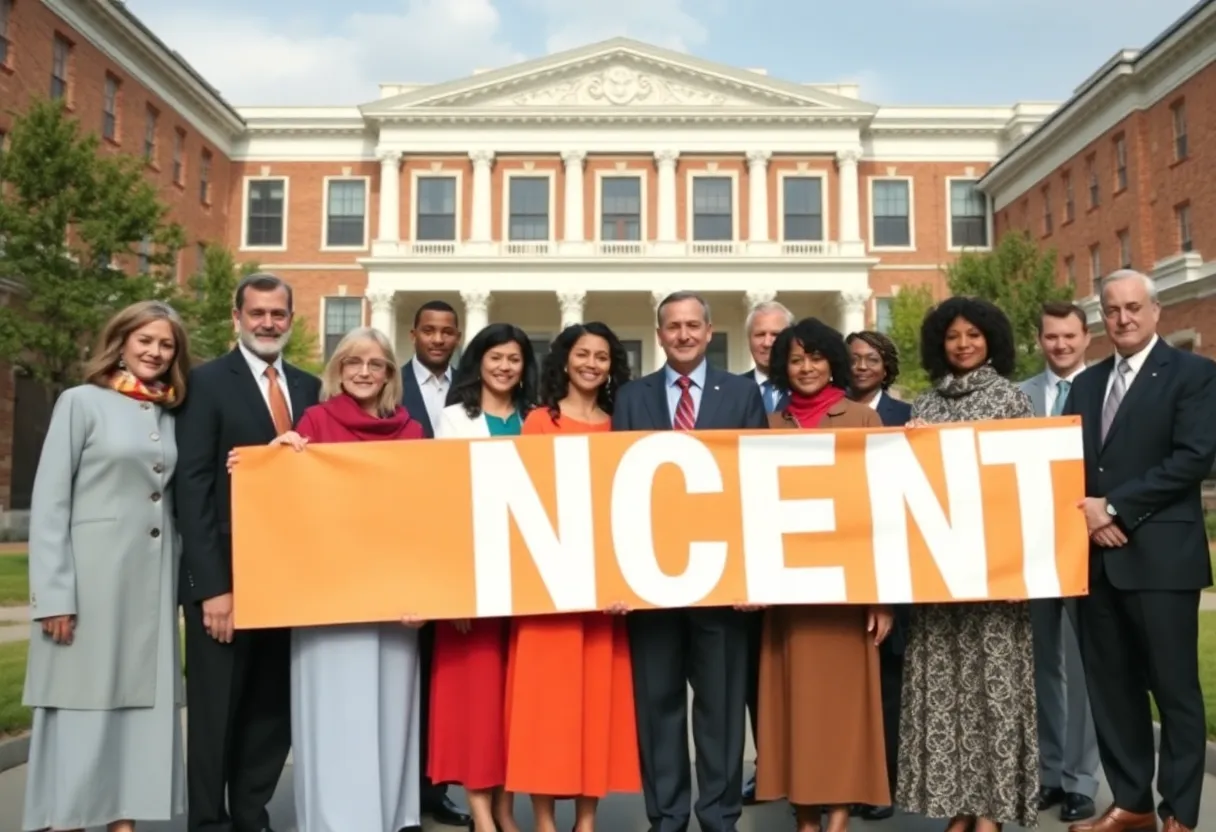

More than 150 university presidents join together to oppose federal funding coercion.
Over 150 university presidents have united in opposition to the Trump administration’s tactics of using federal funding to influence higher education policies. This unprecedented letter organized by the American Association of Colleges and Universities highlights concerns over government overreach, political interference, and the impact on institutions’ core values. With threats of significant funding cuts and pressure to alter admissions processes, educational leaders are alarmed about the future of academic autonomy and student rights, particularly affecting international students.
In an unprecedented show of unity, more than 150 university and college presidents have banded together to voice their strong opposition against the Trump administration’s use of federal funding as a tool to modify higher education policies. This collective action underscores a growing concern among educational leaders about the tactics being used to influence institutions across the nation.
This notable letter, orchestrated by the American Association of Colleges and Universities, highlights the actions of the current administration that have put prestigious universities in a tight spot. They have threatened to pause billions of dollars in federal grants to institutions like Harvard, Columbia, and Princeton unless these schools adhere to politically motivated demands. The letter from the university presidents is more than just a collection of signatures; it represents a refusal to allow what they deem unprecedented government overreach and political interference in the academic sphere.
The pressure placed on these universities isn’t just about funding; it’s about changing the core values and policies that define their institutions. Federal officials are reportedly urging universities to alter their admissions processes and penalize student protesters. For instance, Columbia University faced criticism for complying with some of these demands, including implementing restrictions on mask-wearing during protests and adjusting academic oversight practices. However, this compliance led to significant backlash, resulting in the resignation of Columbia’s interim president.
The Trump administration is taking a hardline approach, threatening to suspend a staggering total of $3.2 billion in federal grants across various universities. This situation is particularly dire for schools like Columbia, Harvard, and the University of Pennsylvania, which rely heavily on these funds for their operations and student programs. Harvard has taken a stand against these demands, opting instead to file a lawsuit to contest the termination of $2.2 billion in federal grants it faces due to its refusal to comply.
Moreover, the letter touches on another alarming issue—international students. The Trump administration’s stance on deporting students, particularly those from the Middle East involved in protests, has sparked serious concern among university leaders. Reports have surfaced about immigration authorities revoking hundreds of student visas from foreign students, with many of these students participating in pro-Palestinian protests last year. This level of scrutiny raises questions about the safety and rights of international scholars within U.S. educational institutions.
While many educational leaders align against these policies, responses to the letter have varied. A White House spokesperson has downplayed the significance of the letter, referring to its signatories as “overpaid blowhards,” and maintaining that the administration is committed to principles of equality and fairness. This dismissive remark adds another layer of tension between the academic community and federal officials, further fueling the debate about the role of government in education.
This collective movement by university leaders is a pivotal moment for higher education in the United States, representing an important stand against governmental overreach. As more universities voice their opposition and seek to protect their autonomy, it raises crucial questions about the future of educational policy, student rights, and the role of federal funding. The situation continues to evolve, highlighting a landscape where the intersection of politics and education has never been more prominent.
News Summary President Donald Trump is set to reintroduce the 'most favored nation' initiative aimed…
News Summary In a surprising verdict, a state jury acquitted three former police officers of…
News Summary Attorney General Pam Bondi is aggressively promoting a tough-on-crime agenda under the Trump…
News Summary The UK is poised to become the first country to sign a historic…
News Summary Portillo's, the renowned Chicago-style restaurant, is coming to Schertz, Texas, promising a menu…
News Summary A local cleaning business in Temple, Texas suffered a theft of two vehicles,…